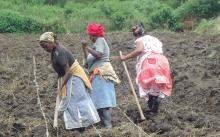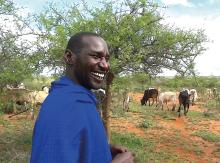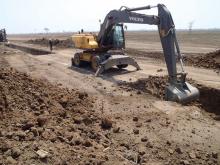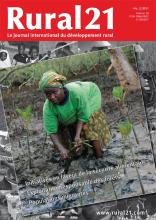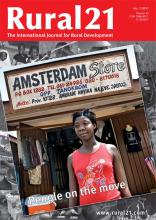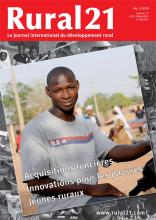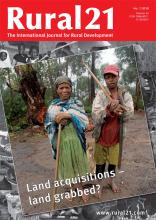Land Library
Welcome to the Land Portal Library. Explore our vast collection of open-access resources (over 74,000) including reports, journal articles, research papers, peer-reviewed publications, legal documents, videos and much more.
/ library resources
Showing items 1 through 9 of 15.Following the end of apartheid, South Africa’s government set itself ambitious goals with a planned land reform. However, there have since been barely any changes in the country’s agricultural structure, and the positive impacts that were hoped for on rural livelihoods have hardly materialised.
The year 2016 marks 15 years since the new wave land reforms became operational in Tanzania. Despite its ambitious goals – encouraging land registration and titling, and empowering women and other vulnerable groups – the results are disillusioning.
The buying up of farmland by international investors is viewed highly critically. However, sweeping judgements could be inappropriate, as our author demonstrates with survey results from Ethiopia and Uganda.
Liberia’s government seeks to put greater emphasis on integrated cash/food crop systems with broad-based farmer participation. However, shortcomings in regulations on land transactions could threaten livelihoods in what is already a vulnerable country.
Au Burkina Faso, le potentiel en terres arables à vocation agricole est épuisé. À l’avenir, la population en rapide expansion ne pourra être nourrie que s’il est possible d’accroître les rendements sur les terres cultivées existantes.
Burkina Faso is already using all its possible farmland. In future the only way to feed the rapidly growing population will be by increasing yields on existing land. Building stone contour lines enables rainwater to be better used and slows erosion.
Si les investissements étrangers directs (IED) dans les terres arables peuvent stimuler la croissance économique, ils peuvent aussi, le cas échéant, affecter de manière négative la situation des revenus et la sécurité alimentaire de la population locale.
Since the 2008 food price crisis, foreign investors have been acquiring more and more land in poor countries for producing foodstuffs and biofuels for their own use. Such investments have the potential to promote rural development and food security worldwide.
The recent upsurge in Foreign Direct Investment (FDI) in land raises the hope to bridge the gap of decades of underinvestment in developing countries’ agricultural sector, but it may also threaten host countries’ food security and increase the vulnerability of the rural population.

